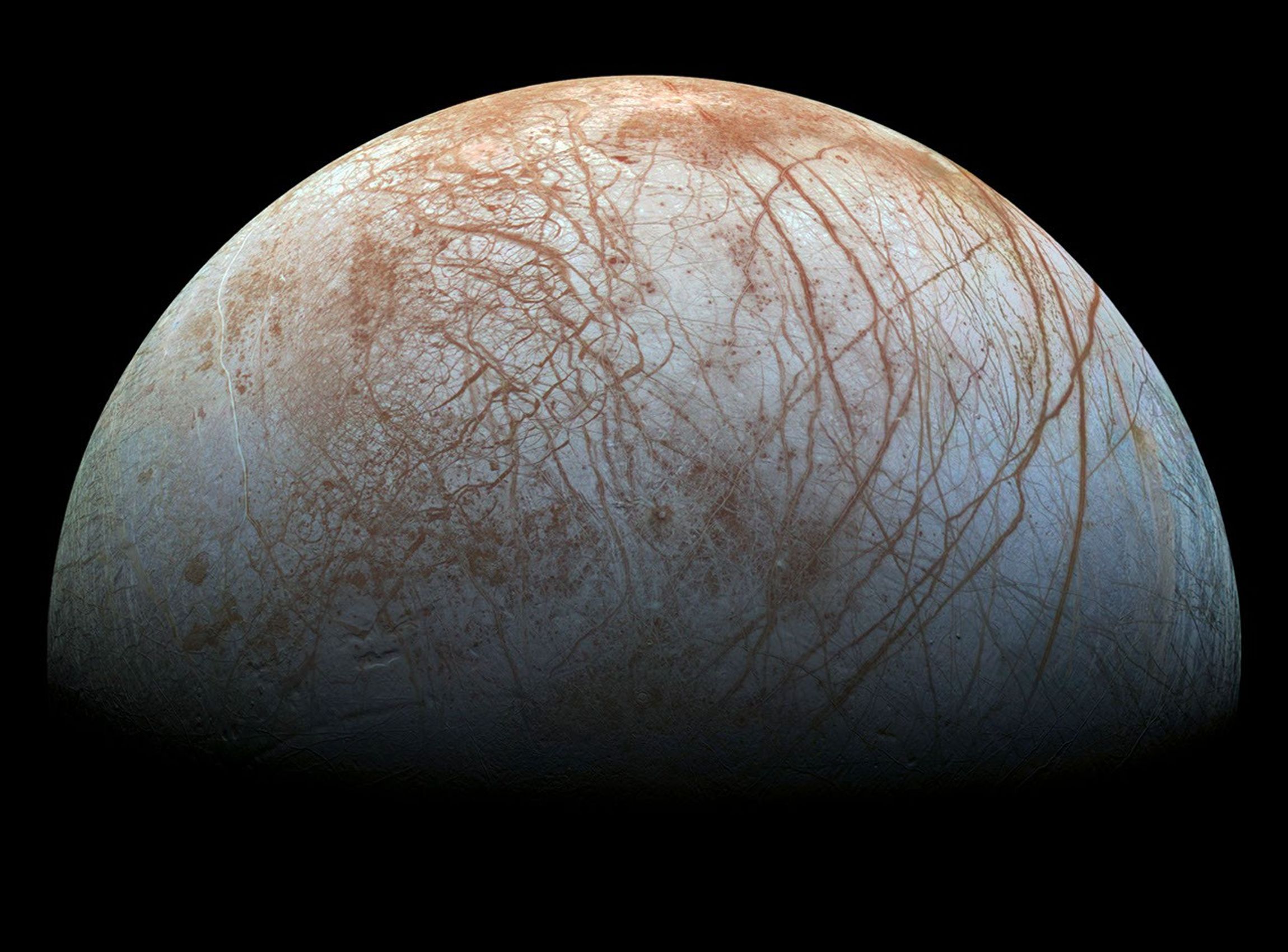- My Forums
- Tiger Rant
- LSU Recruiting
- SEC Rant
- Saints Talk
- Pelicans Talk
- More Sports Board
- Coaching Changes
- Fantasy Sports
- Golf Board
- Soccer Board
- O-T Lounge
- Tech Board
- Home/Garden Board
- Outdoor Board
- Health/Fitness Board
- Movie/TV Board
- Book Board
- Music Board
- Political Talk
- Money Talk
- Fark Board
- Gaming Board
- Travel Board
- Food/Drink Board
- Ticket Exchange
- TD Help Board
Customize My Forums- View All Forums
- Show Left Links
- Topic Sort Options
- Trending Topics
- Recent Topics
- Active Topics
Started By
Message
re: What would like to see / know about in our solar system during your lifetime?
Posted on 8/1/25 at 2:38 pm to weagle1999
Posted on 8/1/25 at 2:38 pm to weagle1999
quote:
What would like to see / know about in our solar system during your lifetime?
It better happen fast.
Posted on 8/1/25 at 2:38 pm to weagle1999
Not our solar system, but it’d be pretty cool if Betelgeuse went super nova in my lifetime. Of course, that would mean that it already has gone super nova
This post was edited on 8/1/25 at 2:40 pm
Posted on 8/1/25 at 2:45 pm to weagle1999
I certainly want to know what’s happening in the ocean of Europa. There’s indirect evidence of hydrocarbons on its surface and a deep ocean (maybe 62 miles deep). There’s indirect evidence the moon is a body where chemical evolution is very active. I hope we can find out soon if that chemical evolution has progressed to biological evolution.


Posted on 8/1/25 at 2:59 pm to cgrand
quote:
The one to Enceladus is particularly exiting as it would make several transits through the venting plumes of water than land at the South Pole where all the action is.
The problem I have with Enceladus is its size. It’s smaller than Texas. I think it’s possible that it doesn’t have all the prerequisites for life to have evolved there.
Furthermore, the water that is pluming from the moon is crystal clear, further indicating the lack of chemical evolution.


Posted on 8/1/25 at 3:06 pm to weagle1999
quote:
Plus, all of our data to this point says there isn’t anyone else out there, to include the fact there has been enough time for an advanced civilization to colonize our entire galaxy.
Well, that’s a strong, and biased, assertion. You are no doubt assuming that all civilizations have the same drive to colonize that the human one does. There may be advanced civilizations that are content to exist on their home planets or within their immediate region of the galaxy.
Posted on 8/1/25 at 3:21 pm to cgrand
quote:
it is unlikely we will discover complex life forms on a habitable earth like planet, without much faster spacecraft. The distances are too large.
We already have the ability to discover other civilizations. With the launch of the Webb space telescope, we can determine the makeup of a lot of exoplanets’ atmospheres.
That’s what caused the sensation about exoplanet K2-18b. Dimethyl sulfide, DMS, was discovered in its atmosphere. This is an indication of the possibility of life on the planet. There are other processes, however, that can produce DMS. A search for the related compound dimethyl disulfide, DMDS, was made but was futile. No DMDS was found. It would have been conclusive evidence for life.
So, we can look for the signatures of life in the gases of exoplanets’ atmospheres. We can also look for the signs of a technological civilization, probably in the form of atmospheric pollutants such as those in our own sky.
Posted on 8/2/25 at 6:23 am to mdomingue
quote:
I think it is clear that you used the word universe to mean anywhere else in the universe. Unless, of course, you think life on Earth is evidence of life in the universe but not life in the solar system or galaxy. Now that would be a really stupid statement.
Like I said, you is be stupid huh? Earth is proof life exists in the universe. But let me guess you a woke christian who thinks earth was built by jesus and some holy ghost and the rest of the universe was just put there for shits and giggles to trick the non believers into worshipping the devil? Wow you really is be stupid huh?
Posted on 8/2/25 at 6:43 am to speedybaw
Can't even defend your own opinions. Carry on, moron. 
Posted on 8/2/25 at 1:30 pm to mdomingue
quote:So you saying we can't use Earth as an example of life existing in the universe? Yeah you is be stupid.
Can't even defend your own opinions. Carry on, moron.
Posted on 8/2/25 at 1:33 pm to speedybaw
So you're saying you don't understand what elsewhere means? Talk about stupid
Posted on 8/2/25 at 1:39 pm to weagle1999
A place where a message board thread doesn't devolve into a cockmeasuring contest by 3rd grade imbeciles.
Posted on 8/2/25 at 1:40 pm to mdomingue
quote:So you saying that one can't use evidence to show life exists?
So you're saying you don't understand what elsewhere means? Talk about stupid
Posted on 8/2/25 at 2:00 pm to Kentucker
quote:no we don’t. We only have the ability to detect chemical signatures as you noted in your post. That’s not the same as observing and collecting actual microbial life. We can only do that within our own solar system, and Europa and Enceladus are our best chances to do that. If we were to visit those moons, and collect definitive proof of life, then and only then could we be sure in our assumptions of what that means when we see signatures of life on distant planets or moons. We must have the proof
We already have the ability to discover other civilizations.
Posted on 8/2/25 at 2:42 pm to cgrand
quote:
no we don’t. We only have the ability to detect chemical signatures as you noted in your post. That’s not the same as observing and collecting actual microbial life. We can only do that within our own solar system, and Europa and Enceladus are our best chances to do that. If we were to visit those moons, and collect definitive proof of life, then and only then could we be sure in our assumptions of what that means when we see signatures of life on distant planets or moons. We must have the proof
Though our data set for studying life in the universe is only 1, it still tells us a lot about the possibilities elsewhere:
1. Life is possible;
2. Intelligent life is possible;
3. Life can arise very quickly on a new planet;
4. The evolution from single-cell organisms to multicellular beings may take an extremely long time, 3 billion years in earth’s case;
5. A settled and stable solar system is probably required based on the length of time it took for complex life to evolve on earth;
6. A thick atmosphere with the gases necessary to maintain life is a prerequisite.
quote:
That’s not the same as observing and collecting actual microbial life.
Of course it isn’t but your view is extremely limiting. There is no way that we will be able to travel to a distant exoplanet and sample its environment in a search for life; but to say that we must find microbial life, at least, on other bodies in the solar system so that we can actually examine it before being able to say that life exists on exoplanets doesn’t recognize our capabilities to do just that.
We have a data set, earth, with which to compare any discoveries on exoplanets. For example, since the beginning of the Industrial Revolution, we have been pumping manufacturing pollutants into our atmosphere. If we were to observe these same pollutants in the atmosphere of an exoplanet that had all the other prerequisites for life, we could conclude that a civilization had begun there and was well into the technological stage of evolution.
Posted on 8/2/25 at 2:53 pm to Kentucker
quote:we could that, and we could be wrong. Those may be natural phenomena. We need proof. Proof in the form of observed/collected microbial life, outside of earth. Without that, any conclusions are theoretical. We need to go to Jupiter and Saturn, land on those two moons, and collect samples. If there is life, then we can confirm our conclusions
we could conclude that a civilization had begun there and was well into the technological stage of evolution.
that is the scientific method.
Posted on 8/2/25 at 2:57 pm to Kentucker
quote:
With the launch of the Webb space telescope, we can determine the makeup of a lot of exoplanets’ atmospheres.
Millions of years in the past.
We have no idea what they would be like now, just like we have no way of knowing what our own planet will be like millions of years from now.
Posted on 8/2/25 at 3:03 pm to cgrand
quote:
We need to go to Jupiter and Saturn, land on those two moons, and collect samples. If there is life, then we can confirm our conclusions
I hate to disillusion you but if any life forms are ever found within the solar system, they are likely to have DNA identical to that of life on earth. Because life began so quickly on earth, the probability that it spread to other bodies is high.
Asteroids and comets routinely pummeled the earth early on and chunks were blown off and launched into the solar system, some of them bearing the life that had originated on our planet. Kind of panspermia in reverse.
Posted on 8/2/25 at 3:08 pm to forkedintheroad
quote:
Millions of years in the past.
Certainly not all of them. For example, there are about 10,000 stars within just 100 light years of us and 512 of them are sun-like.
Posted on 8/2/25 at 3:30 pm to Kentucker
quote:
1. Life is possible; 2. Intelligent life is possible; 3. Life can arise very quickly on a new planet; 4. The evolution from single-cell organisms to multicellular beings may take an extremely long time, 3 billion years in earth’s case; 5. A settled and stable solar system is probably required based on the length of time it took for complex life to evolve on earth; 6. A thick atmosphere with the gases necessary to maintain life is a prerequisite.
Also need a functioning magnetosphere and a Jupiter sized planet close by to suck up almost all of the killer asteroids.
Popular
Back to top



 1
1





